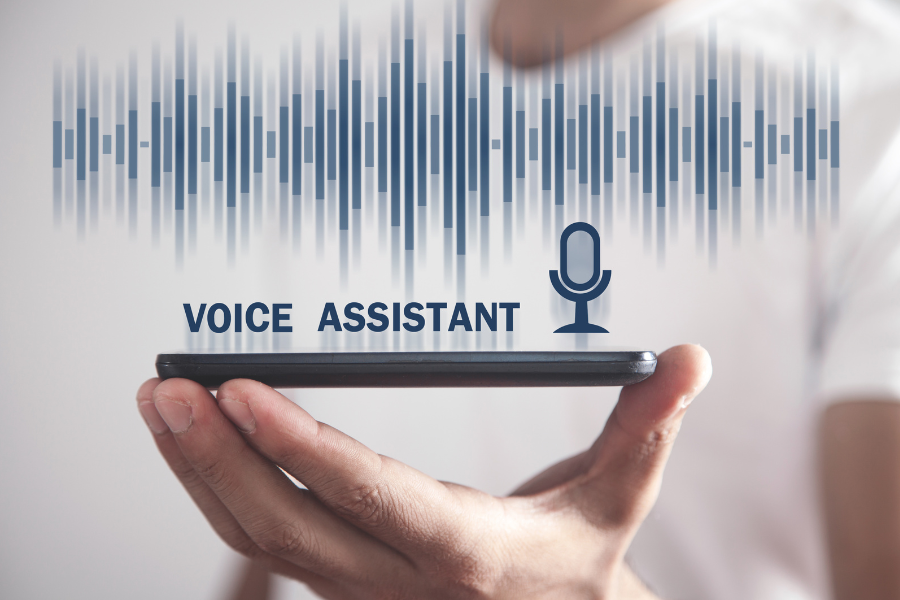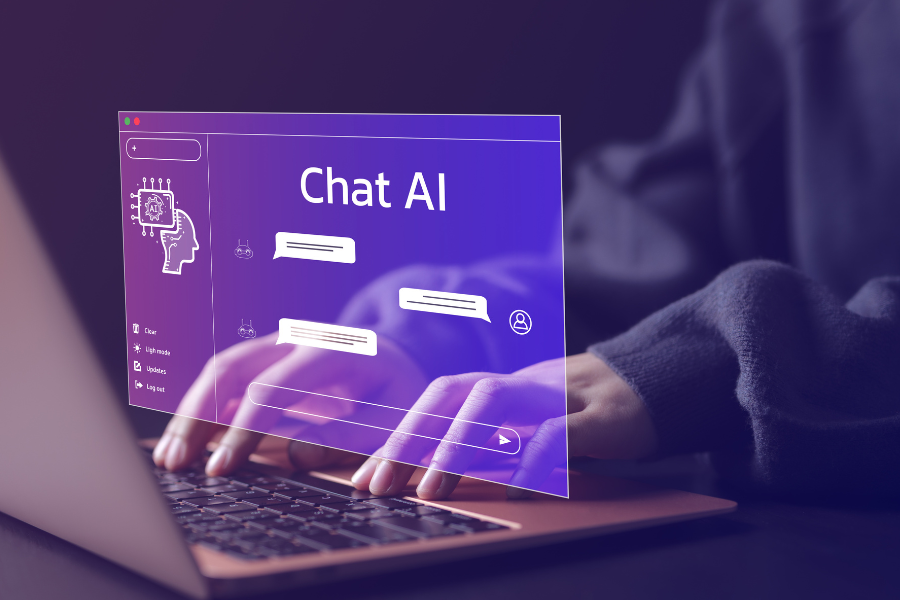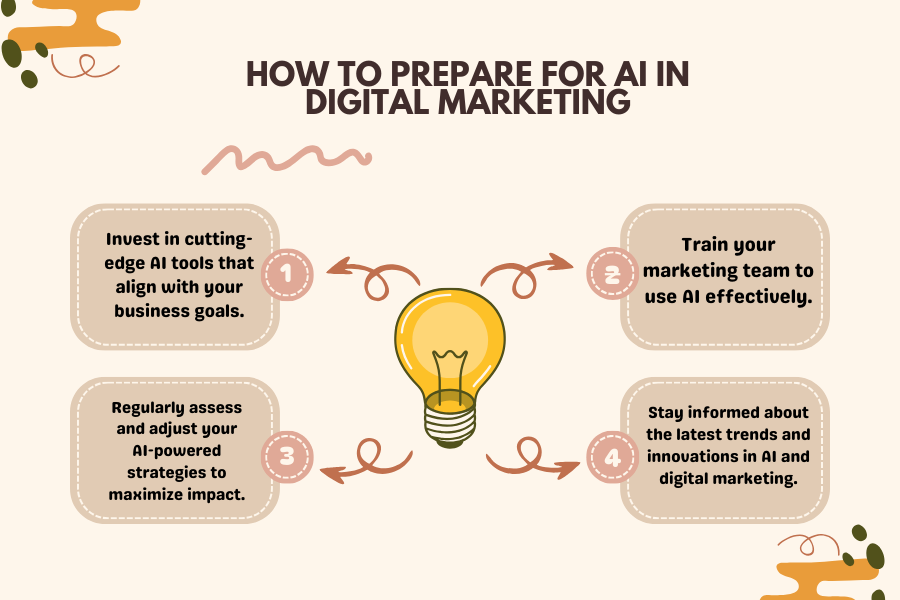Artificial intelligence (AI) continues to transform digital marketing, revolutionizing how businesses reach, engage, and convert their audiences. By leveraging machine learning, natural language processing (NLP), and predictive analytics, AI helps businesses create highly efficient and personalized marketing campaigns. As 2025 unfolds, AI-powered digital marketing is expected to set new benchmarks in creativity, efficiency, and performance. This blog explores the trends, forecasts, and challenges of AI in digital marketing and highlights how businesses can harness its potential to stay ahead in a competitive market.
What is AI-Powered Digital Marketing?
AI-powered digital marketing refers to using advanced artificial intelligence tools and algorithms to streamline, analyze, and enhance marketing strategies. These technologies enable businesses to optimize campaigns, predict customer behaviors, and automate routine tasks, saving time and resources while increasing return on investment (ROI).
AI tools use vast datasets to identify patterns, improve decision-making, and deliver personalized experiences to customers. From chatbots that simulate human interactions to algorithms predicting the next big trend, AI is reshaping the digital marketing landscape for good.
Key Trends in AI-Powered Digital Marketing for 2025
1. Hyper-Personalization at Scale
One of the most significant advancements AI brings to digital marketing is hyper-personalization. In 2025, brands are expected to use AI to deliver deeply personalized customer experiences across all touchpoints.
- AI will analyze extensive data, such as user browsing history, purchase patterns, and preferences, to offer tailored solutions.
- Brands will be able to dynamically create personalized emails, ads, and product recommendations.
- Customers will experience more meaningful interactions, improving brand loyalty and boosting sales.
This level of personalization fosters a stronger connection between brands and their customers, making every interaction relevant and memorable.
2. Voice Search Optimization
The growing adoption of voice-enabled devices, such as smart speakers and virtual assistants, has made voice search optimization a top priority for marketers. AI-powered tools will help marketers adapt their content strategies to cater to voice queries.
- AI algorithms will identify conversational search patterns, enabling content to align with natural speech.
- Businesses will target long-tail keywords that match how users phrase voice search queries.
- Optimizing for voice will improve SEO rankings and provide brands with a competitive edge.
With more consumers relying on voice search, marketers must embrace this trend to remain relevant.
3. AI-Powered Chatbots and Conversational AI
In 2025, chatbots will become an indispensable tool for businesses aiming to enhance customer service and engagement. These AI-driven solutions will handle routine queries while offering conversational experiences.
- Chatbots will provide 24/7 support, ensuring customers get assistance whenever needed.
- They will process user data to personalize responses, creating a seamless interaction.
- Businesses will use conversational AI for lead generation, sales, and resolving customer issues efficiently.
As chatbots grow smarter, they will become more intuitive, helping businesses cut costs and improve the customer experience.
4. AI-Driven Content Creation
AI-powered tools are streamlining content creation by automating repetitive tasks, generating drafts, and optimizing outputs. In 2025, businesses will rely more on AI to create diverse and engaging content.
- AI will assist in generating blog posts, social media captions, and ad copy.
- Businesses will automate content scheduling, ensuring consistent messaging.
- Dynamic content creation will enable real-time updates based on customer interactions.
This trend not only saves time but also ensures marketers can focus on strategy and creativity while maintaining quality.
Forecasts for AI-Powered Digital Marketing in 2025
1. Predictive Analytics Takes Center Stage
Predictive analytics powered by AI will become a cornerstone of marketing strategies in 2025. This technology analyzes historical data to forecast customer behavior and market trends, enabling businesses to act proactively.
- Brands will use predictive analytics to anticipate customer needs, improving product recommendations.
- Seasonal trends and demand fluctuations will be easier to predict, allowing businesses to plan marketing campaigns effectively.
- Customer retention strategies will be enhanced by predicting churn and addressing it early.
2. AI-Enhanced Social Media Marketing
Social media platforms are integrating AI tools to improve the effectiveness of advertising campaigns. By 2025, marketers will rely heavily on AI to analyze user behavior and fine-tune their strategies.
- AI will analyze audience sentiment and adjust campaign messaging in real-time.
- Advanced targeting options powered by AI will improve ad performance and ROI.
- Social media algorithms will use AI insights to suggest better ways to engage audiences.
These advancements will help businesses reach the right people with the right message at the right time.
3. Focus on Ethical AI Usage
As AI becomes deeply embedded in marketing strategies, ethical concerns will take center stage. In 2025, brands will focus on ensuring their AI tools are transparent, fair, and compliant with data privacy regulations.
- AI will prioritize user consent and data protection to comply with stricter laws.
- Marketers will address potential biases in AI algorithms to ensure fairness.
- Ethical AI usage will build trust with consumers, making it a competitive advantage.
Transparency and fairness will be non-negotiable for brands seeking to maintain their reputation in a data-driven world.
Benefits of AI-Powered Digital Marketing
1. Enhanced Efficiency
AI automates time-consuming tasks, such as data analysis and email marketing, enabling marketers to focus on strategy and innovation.
2. Improved Decision-Making
AI provides actionable insights from complex datasets, allowing marketers to make informed decisions and optimize campaigns.
3. Personalized Experiences
With AI, businesses can deliver tailored content, ensuring customers feel valued and understood, leading to higher engagement.
4. Maximized ROI
AI continuously optimizes campaigns based on performance, reducing waste and driving better results.
Challenges in AI-Powered Digital Marketing
Despite its many advantages, AI-powered digital marketing has its share of challenges:
- Data Dependency: Poor data quality can hinder AI’s effectiveness.
- High Costs: Implementing advanced AI tools can require significant investment.
- Lack of Expertise: Businesses may need specialized talent to leverage AI effectively.
- Privacy Concerns: Marketers must ensure AI tools comply with evolving data protection regulations.
How to Prepare for AI in Digital Marketing
To remain competitive in 2025, businesses should actively integrate AI into their marketing strategies. Here’s how:
1. Invest in cutting-edge AI tools that align with your business goals.
2. Train your marketing team to use AI effectively.
3. Regularly assess and adjust your AI-powered strategies to maximize impact.
4. Stay informed about the latest trends and innovations in AI and digital marketing.
Conclusion
AI-powered digital marketing is revolutionizing the way businesses connect with their audiences. In 2025, trends like hyper-personalization, predictive analytics, and conversational AI will dominate the landscape, allowing businesses to stay competitive and relevant.
By adopting ethical practices and investing in AI technologies, brands can enhance efficiency, improve customer experiences, and achieve higher ROI. As AI continues to evolve, it promises to unlock new opportunities and set new benchmarks in the digital marketing arena.
Contact Us
For expert assistance with digital marketing strategies, reach out to Space Creative Agency today.
Phone: 608-217-8434
Email: info@spacecreativeagency.com




